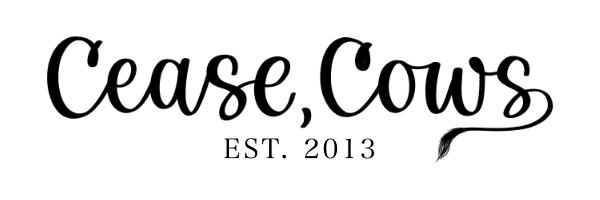The mayor and his elk balked at the town council’s plans.
The red ink pen came to hover over that line. The fingernails scratched at the sideburns. The brow furrowed. I doubted the mayor in the novel that the kid was describing to me hunted elk. The mayor and his elk balked? I looked at the type again, saw the white spaces stretching between outsized characters in Courier New font, followed the last cross-outs the red pen had made, and pieced it together: The mayor and his ilk.
The brow smoothed out and the lips turned up as my red pen wrote ilk above the word. Not such a bad mistake, really: it’s not like the twenty-two-year-old kid writing the essay talked about people “of a certain ilk” much or hunted elk very often. People of the kid’s ilk, after all, probably didn’t think of themselves as balking much.
Further down in the same paragraph with the mayor and his oddly compliant quarry, the kid had written, clearly the town cuddled its football heroes. The mental image of a town wrapping its gridiron warriors in a cozy, cuddly counterpane for intimate snuggling produced a smile. But sure enough, as the swift pen emended cuddled to coddled, I heard the tinny signal, unmistakably, marking the mistake.
That tin clink had always sounded to me like someone tightening her knuckles around empty aluminum—just a quick, metallic crackle meaning nothing at all, but pregnant, I knew, with meaning, all the same. The day before I had taught my first class and passed my own last grammar exams—sixteen years ago this term—they wired me, leaving it cunningly concealed in the sideburns above my left ear, where I could just feel it with my fingertips, but never dislodge it or turn it off. It made that tinny, metallic report day and night, in class and out. It was as if someone had suddenly felt a Budweiser can slipping away, and had held it fast: the metallic tink assured the someone that she still held the can—and it assured me they were coming one step closer with each tink.
So, in class, for years now, tink would sound, to me alone, when a tattooed lad would speak of his own poor high school preparation for my grammar class and plead to me, sure, given where he and his friends have been, “of course we do bad.” I wince at the metal crumpling sound. He stops speaking, knowing from my forehead furrows that my mental red pen’s flying. I go Socratic on the grammar lesson and he’s amenable, so we soon establish badly at least makes it adverbial. A string of proffered synonyms probes badly‘s ambiguity. He knows it’s wrong somehow, and the tinny signal’s still sounding. His classmate-compatriot, a young lady in lace, suggests poorly instead. I smile and sigh, since the tin pang is not sounding through my temples, in tacit adoration of lace lady’s emendation. Offering performed instead of do, I am content the class has made it so far, that they know nothing of the metallic signal, and know nothing about how close they’ve come.
Even their honest mistakes and my inward smiles all come with their own tin tinks as I correct. I time a single swipe of the red pen, diagonally across a passive voice, to match the staccato of the tink. Red semicolons scar comma splices at the same rapid rate. Scarlet spatters all modifiers with the audacity to dangle. I lecture one day on Virginia Woolf’s droll humor, and I write droll—fearing the term was new to them—on the board. Sure enough, an honest and sincere kid’s theme surveys Woolf’s drool comedy. I laugh over the image of the prissy dowager drooling in a room of her own, salivating over Judith Shakespeare and lamenting deaths of moths even as particles of her spittle flew, but metallic, mental crackles come to me each time the student tells me droll Virginia drools.
Her classmate, who never removed her white earphones, once described a television drama as fast paste, and I guessed it had unwittingly diluted her Elmer’s glue. A young man at the back of a row, with some musician perpetually poised above a drum set on his tee shirt, had wanted to write that one merely had to add a row of figures and, voila, one would have the answer. He had been right, he had been sincere, and his heart, behind that screen-printed percussionist, was in the right place. But he’d spelled voila, the only way he knew how: wallah. The tink‘s brief report spelled doom all the more.
I could sense the metallic patch was indeed highly tuned, that in sixteen years of teaching, its accuracy had honed. I knew that, with each tink, each academic term, what we all dreaded drew nearer. Once, rescuing prepositions left oddly orphaned at the ends of sentences, I sensed a military presence, as if a tense détente had unraveled. Once, suggesting three times in one paragraph that a sophomore’s mighty periods should supplant several usurper commas, I breathed quicker, just for my student’s sake. Once, noting my most accomplished writer could not tell his it’s from its, his lose from his loose, I wanted to shout out to warn them all, to tell them I had heard the tinks, to explain what too many tinks would mean, for them and for me.
Before I can warn one ill-fated class, the dreaded troops arrive. Correcting possessives on a board peppered with misplaced apostrophes, I wince at each tink but I keep amending doggedly, and even so, the door to the room bangs open. Ten-foot metallic beings crowd in, enmeshed in steely chrome. Weapons firing, sci-fi nightmares collide in carnage, and somewhere, some sly Schwarzenegger smiles. Students, fully awake for the first time in days, shrink behind desks, wilt at first shots, and shoot me their last, accusatory looks.
Too late now, they know about the tinks I had been hearing and the ghouls those tinks had summoned. Too late, with pupils littering the battlefield, the thugs stomp the floor in boots that tink—that echo the tinny crackles I had heard all along, and that correspond with each robotic footfall to each teacher’s wired, unwitting call. They know now I bring the ghouls closer with each mistake, my red pen correcting, my smiles allaying fears, but my conscience knowing, even so, the troops would come.
I turn away from the carnage, returning chalk to the blackboard tray. But I do a double-take, my mental red pen hovering again when I read the reconnoitering robots’ backs. Stenciled there portentously, making my patch tink in a different tone, are the words: GRAMMER POLICE.
–
Adam Sonstegard teaches English at Cleveland State University in Cleveland, Ohio. He writes on American Literature most often, and tries his hand at flash and short fiction occasionally, when his teaching experiences inspire it.
*Note: The mistake in the title is intended, and all italicized phrases in this story are actual mistakes Adam has corrected in student papers.
Lead image: “Basingstoke Office Staff Desk ‘No computer’” (via Flickr user John Sheldon)

